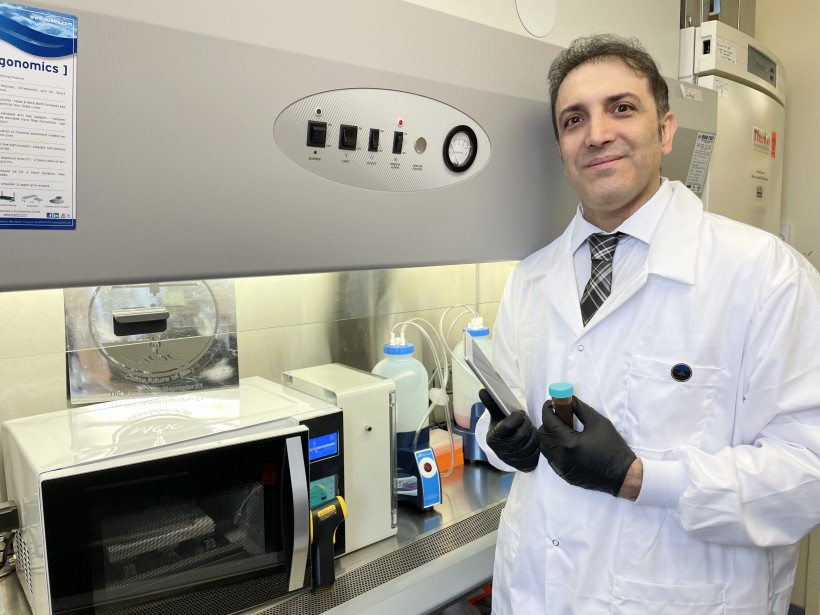Halifax bioprinting startup MOC Biotechnologies is testing its products with a slate of universities and research institutions across North America as it eyes its first major capital raise.
Founded in 2019 by serial entrepreneurs Ali Mousavi and Arash Helmi, MOC makes technology for 3D printing artificial tissues, such as cartilage, heart valves and nerves. The next step, CEO Mousavi said in an interview, is creating products with effects that gradually evolve over time — a process known in the industry as “4D bioprinting.”
So far, the company has been bootstrapped, with Mousavi and Helmi cautious about giving away equity too early, although research funding organizations like NRC-IRAP have provided some non-dillutive capital.
“We’re adding a fourth dimension to 3D printing,” he said, adding that the technique has applications in cancer treatment, since pharmaceutical products can be stored in a piece of bioprinted material and released gradually. “The fourth dimension is time.”
When MOC launches its products more widely next year, the launch spec will include the 4D bioprinting capabilities.
Last year, Mousavi and Helmi were accepted into the Garage+ startup accelerator in Taipei, which Mousavi said was significant because Taiwan has a thriving manufacturing sector in precision electronics and he hopes MOC will eventually be acquired by a larger corporation.
In November, MOC was one of seven companies pitching in the Canadian finals of the Entrepreneurship World Cup, and one of three from Atlantic Canada.
And last week, Mousavi and Helmi won third prize in the Chinese government's T-MAX International Innovation and Entrepreneurship Competition in the biomedicine and medical device sector, beating about 250 other competitors.
MOC is developing two business models simultaneously: a service business whereby the company uses its technology to fulfill orders based on MRI data, and a model that involves selling bioprinters and the specialized inks needed to operate them.
"(The) MOC bioprinter is the world’s first hybrid bioprinting technology that is able to clone ... hard and soft tissue for human organs simultaneously," says the company on its website.
On Thursday, Mousavi showed off a tablet computer that was connected to a bioprinter, explaining that MOC will eventually use internet-of-things technology to send data about printers’ operations to mobile devices. A core part of MOC's growth strategy, he said, is to have emerging market trends in medtech, like IoT computing, inform its research and development pathway.
This is an opportune moment to be in the bioprinting business, he added, because bioprinted materials can function as a substitute for animal testing for pharmaceuticals and cosmetics. The United States banned some animal testing in September in response to concerns about the role laboratory animals can play in the emergence of infectious diseases. The U.S. also legalized non-animal testing, such as via bioprinted tissues.










